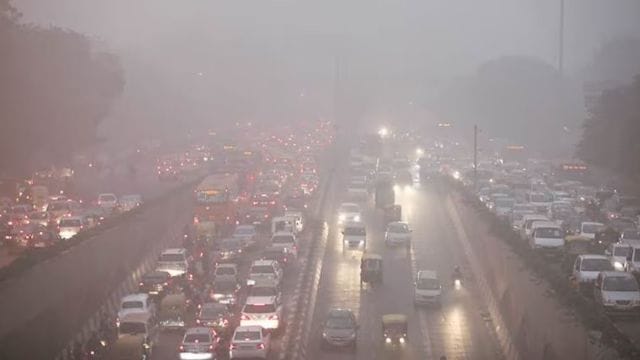CAQM seeks innovative ideas, tech solutions to combat air pollution in Delhi-NCR
The proposals must encompass the assessment of the most effective policies, products, and processes for the abatement of air pollution in Delhi-NCR, the Commission for Air Quality Management has stated.
 Under Sections 12(2)(vi) and 12(6)(c)(iii) of the CAQM Act, the Commission is empowered and mandated to carry out research and development on air pollution. (File Photo)
Under Sections 12(2)(vi) and 12(6)(c)(iii) of the CAQM Act, the Commission is empowered and mandated to carry out research and development on air pollution. (File Photo)The Commission for Air Quality Management (CAQM) in NCR and Adjoining Areas has issued a request for proposals (RFP) inviting scientists, researchers, academicians, non-government organisations, community-based organisations, consortia or individuals to submit innovative ideas and technological solutions for the prevention, control and abatement of air pollution in the National Capital Region (NCR).
Proposals must be coordinated by an academic, research or scientific institution recognised by the Government of India, and are to be submitted by July 31, 2025. Eligibility for submission is confined to scientists or experts working through government-recognised institutions; non-governmental organisations, community-based organisations, consortia and individuals must submit their proposals via such institutions.
Under Sections 12(2)(vi) and 12(6)(c)(iii) of the CAQM Act, the Commission is empowered and mandated to carry out research and development on air pollution. In line with this mandate, the RFP has outlined a series of thematic areas on which applicants should focus. These include both exhaust and non-exhaust vehicular emissions; industrial emissions such as those from thermal power plants; dust generated by construction, demolition, roads and open areas; agricultural stubble burning; municipal solid waste, open-burning and biomass-burning; household emissions; dispersed sources; and the identification and mitigation of pollution hotspots.
The proposals must also encompass the development and assessment of the most effective policies, technologies, products, and processes for the abatement of air pollution across these sectors. The projects will receive financial support for a maximum duration of three years, under both recurring heads (for items such as personnel and consumables) and non-recurring heads (for capital equipment and infrastructure). Budget details and a clear three-year work plan should be included in each submission, the Commission stated.
The submissions will be evaluated by the Project Evaluation and Appraisal Committee constituted by the Commission, with a focus on outputs and outcomes and criteria, including implementability, replicability, and scalability, it said.











